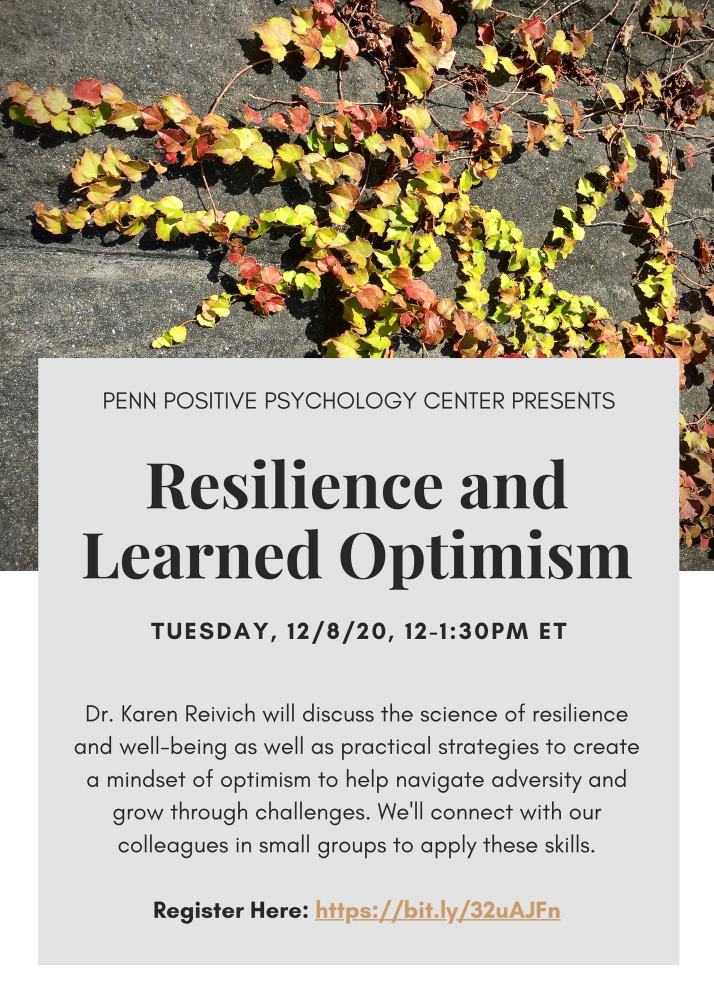learned optimism is the practice of developing an increasingly optimistic perspective through resilience training

The Power of “Learned Optimism” – Building Resilience and Embracing Positivity

Introduction
In our ever-changing world, resilience and the ability to maintain a positive outlook have become crucial factors for personal and professional success. While life can be challenging and filled with obstacles, the practice of “learned optimism” offers a powerful tool to develop a more optimistic perspective through resilience training. This article explores the concept of learned optimism, its significance in cultivating positivity, and how it can benefit individuals in various aspects of their lives.
Understanding Learned Optimism
“Learned optimism” is a concept pioneered by renowned psychologist Martin Seligman and is based on his theory of learned helplessness. Seligman discovered that individuals who experienced a lack of control over their circumstances often developed a pessimistic outlook, leading to decreased motivation and increased vulnerability to depression. Understanding this, Seligman explored ways to reverse learned helplessness and promote a more optimistic mindset.
Resilience training serves as one key method to facilitate the process of learned optimism. By acquiring the skills and strategies to cope with adversity, individuals can reshape their thought patterns and reframe negative experiences, ultimately cultivating a more positive and optimistic attitude towards life.
The Benefits of Learned Optimism

1. Enhanced Mental Well-being
Learned optimism has been found to reduce symptoms of depression and anxiety while enhancing overall mental well-being. By developing a more positive mindset, individuals can bounce back from setbacks more easily, remain motivated, and experience greater emotional stability. Embracing optimism allows us to focus on solutions rather than dwelling on problems, leading to improved psychological resilience.
2. Improved Physical Health
The power of positivity extends beyond mental well-being and impacts physical health as well. Research has highlighted a link between an optimistic outlook and better cardiovascular health, stronger immune function, and decreased risk of chronic illnesses such as heart disease and hypertension. Choosing optimism can effectively boost our overall physical resilience.
3. Increased Resilience
Resilience, the ability to adapt and recover from adversity, is a key characteristic of learned optimism. By embracing this mindset, individuals develop the inner strength to persevere through challenges, bounce back from setbacks, and navigate life’s ups and downs with greater ease. Ultimately, the power of learned optimism lies in its capacity to foster resilience and empower individuals to face and overcome obstacles with confidence.
4. Enhanced Relationships
Optimism has a ripple effect on our interactions and relationships. When we approach life with a positive perspective, we radiate positive energy and attract like-minded individuals. Additionally, an optimistic outlook enables us to communicate effectively, resolve conflicts constructively, and build healthier and more fulfilling connections. Learned optimism, therefore, paves the way for stronger and more supportive relationships in both personal and professional domains.
Conclusion
In a world that often presents challenges and adversity, embracing learned optimism can be a game-changer. By nurturing resilience and adopting a positive mindset, individuals can experience improved mental well-being, enhanced physical health, increased resilience, and enriched relationships. The practice of learned optimism offers a powerful tool to reshape our perspectives, empowering us to face life’s hurdles with resilience and embrace a brighter and more optimistic future.
Source: Positive Psychology - Learned Helplessness and Seligman’s Theory
Tags
Share
Related Posts
Quick Links
Legal Stuff

